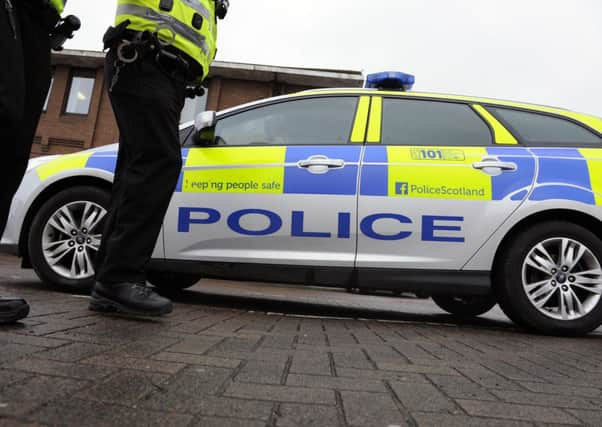Police Scotland bans ‘pigs’ from Facebook page


The force’s filtering software currently blocks 139 words and phrases and among the predictable swear words and racist and homophobic abuse are some possibly unusual choices.
A farmer wanting to report the theft of livestock would not be allowed to use the word “pig”.
Advertisement
Hide AdAdvertisement
Hide AdAnyone employed by the prestigious Royal (Dick) School of Veterinary Studies at Edinburgh University would struggle to name their workplace.
Discussion of Robbie Coltrane’s depiction of a criminal psychologist would be difficult because the word “cracker” - a US term for a white person - is not allowed.
Exploration of door fingerprinting techniques north of the border could be hampered by a ban on the word “knob”.
Scotland’s diminishing band of elderly ladies called Fanny will not even be allowed to post their names.
And fans of rugby wanting to discuss the finer points of a team’s “hooker” could also fall foul of the force’s Facebook filtering.
The list of banned words, released under Freedom of Information, shows the force is naturally keen to avoid abuse of its own staff.
As well as “pig”, the acronym “acab” - all cops are b******* - is not allowed. The term “bacon f******” is also specifically banned.
In a bid to reduce sectarian abuse, words such as “hun”, “fenian” and “green brigade” are off limits.
Advertisement
Hide AdAdvertisement
Hide AdTwo words for types of sex toy are banned as are 32 other words of a sexual nature, including “porn” and its related acronym “milf”, “nipple” and “gobble”.
A total of 65 swear words and insults ranging in vulgarity have been banned by the police - including “balls” spelled with a “z”.
Even trying to smuggle in a swear word by substituting an asterisk or dollar sign, or dropping a letter, has been catered for.
Police Scotland, whose key PR message is “Keeping People Safe”, said: “These are updated as and when noted and are, as I am sure you will note, commonly offensive.”
The force also released its guidance to staff on using social media.
The document advises: “Think about appropriate wording, descriptions and punctuation.
“If someone was seriously assaulted and you made an arrest, you wouldn’t say: ‘WEEKEND HIGHLIGHT! Officers have arrested a 27 year-old man for the alleged serious assault of a 24 year-old man.’
“The wording in bold is too insensitive given that someone was assaulted. You’d be best leaving that out altogether and simply just publicising the fact that someone has been arrested.”
Advertisement
Hide AdAdvertisement
Hide AdIt adds: “Yes, it’s good to post content which shows that you have personality; however, anything you post should always have some sort of policing focus or policing message.
“Try not to use police speak and try to make your posts as engaging as possible. Feedback from the public has stated they prefer a ‘human’ approach to police communications: Instead of male/female, use man/woman, instead of locus, use area, instead of dwelling house, use house/flat, instead of persons, use people.”
Jodie Ginsberg, CEO at Index on Censorship suggested Police Scotland had gone too far with some of its banned words.
She said: “It is the job of the police to protect and defend free expression: a freedom that is protected in law. It is not the police’s job to start censoring our use of language entirely out of context.”
But Eben Wilson from Taxpayer Scotland said: “The police have to protect themselves against people who just lose their manners on the internet.
“I’m all in favour of good manners - it tells you something about the public when they’re online. The police do a difficult job and even though taxpayers pay for them I don’t think it would take them too much time to monitor their Facebook page.”
FOLLOW US
SCOTSMAN TABLET AND MOBILE APPS